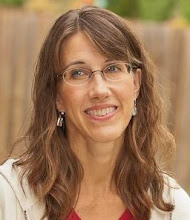I was not disappointed. I liked this novel for some of the reasons I liked Gilead; they are both beautifully written stories of older people, near the end of life, looking back over their lives with a gentle, wise eye. Hannah is written from a woman's point of view, telling of the loss of her first husband in World War II, then building a life on the land with her second husband, come home from the war, raising three children on that farm, and then losing them and her grandchildren to the "better opportunities" of urban employment.
But are they better off? Maybe not, she thinks:
But did we tell the stories right?...
I don't know, but I have had to ask. Suppose your stories, instead of mourning and rejoicing over the past, say that everything should have been different. Suppose you encourage or even just allow your children to believe that their parents ought to have been different people, with a better chance, born in a better place. Or suppose the stories you tell them allow them to believe, when they hear it from other people, that farming people are inferior and need to improve themselves by leaving the farm. Doesn't that finally unmake everything that has been made? Isn't that the loose thread that unravels the whole garment?
And how are you ever to know where the thread breaks, and when the tug begins?
A defense of the agrarian lifestyle and economy is a common theme in Berry's books, I gather from this article. I'll just highlight that this concept is not romantic nostalgia for an age past as much as it is a thought-provoking criticism of history and of our own age. I was challenged and intrigued.
Having grown up on a family farm, I loved these passages:
...You see the house...the barns and other buildings....
What you won't see, but what I see always, is the pattern of our life here that made and kept it as you see it now, all the licks and steps and rounds of work, all the comings and goings, all the days and years. A lifetime's knowledge shimmers on the face of the land in the mind of a person who knows.
I think of my father and his mother, still alive--and "all the licks and steps and rounds of work" they have invested in that farm. And what they have taught me:
As I went about my work then as a young woman, and still now when I am old, Grandmam has been often close to me in my thoughts. And again I come to the difficulty of finding words. It is hard to say what it means to be at work and thinking of a person you loved and love still who did that same work before you and who taught you to do it. It is a comfort ever and always, like hearing the rhyme come when you are singing a song.
I am eager to read more of Berry's novels like this one, about the people of the imaginary town of Port William, Kentucky.

3 comments:
I have not read this, and from your review, I am sure I will love it, so I am off to find a copy!
I've read everything Berry's ever written, and it's always a treat to see his name on the Saturday Review of Books list! Thanks for this good review.
Oh! I just read Gilead earlier this year and LOVED it! It sounds like this one, too, would be right up my alley! I'll keep an eye out for it!
And on a side note, I really like the photographs of your family on the sidebar here. =)
Post a Comment